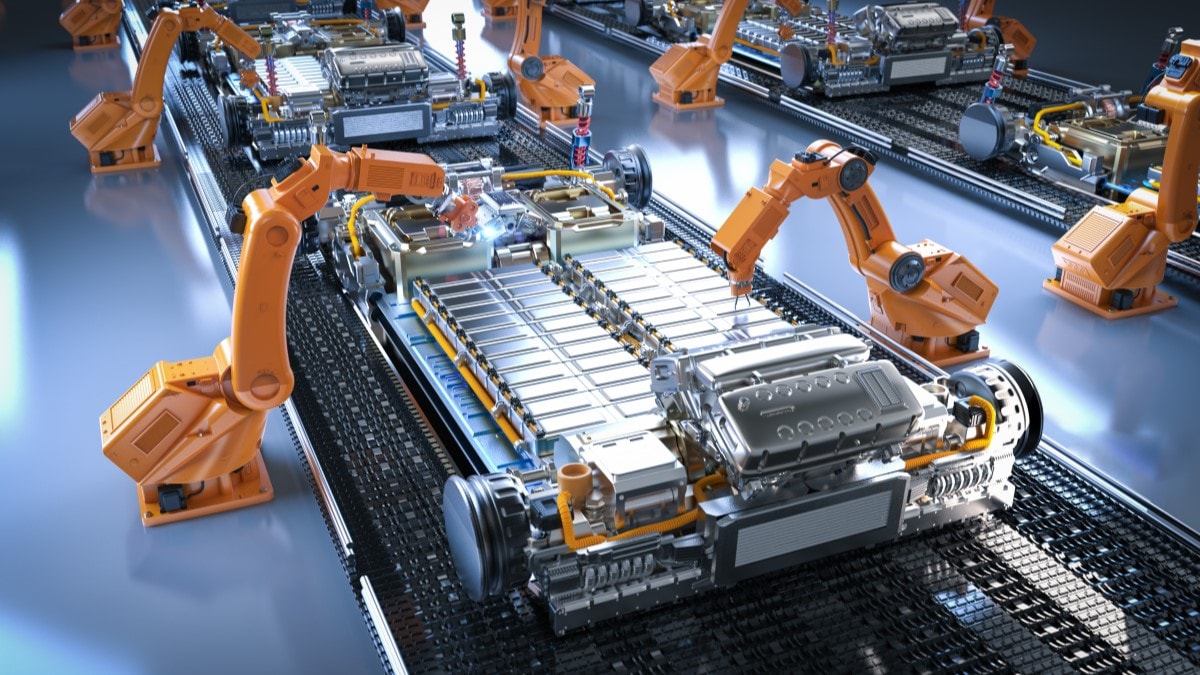
When a expertise is new, it has limitations. Somebody is at all times engaged on a moonshot challenge to eradicate them.
That’s very true of at the moment’s electrical automobiles (EVs). The lithium-ion batteries that energy most of at the moment’s EVs are very similar to people who energy telephones and laptops. However many automakers are pursuing a wholly new kind of battery expertise that could possibly be way more succesful – solid-state batteries. Nissan believes it might get there first.
“By subsequent March, Japan’s No. 3 automaker says, state-of-the-art manufacturing gear can be put in and turning out trial runs of the breakthrough next-generation batteries,” studies Automotive Information.
Initially, the corporate will produce them just for testing. However Nissan plans to “deploy them in a manufacturing EV within the fiscal 12 months ending March 31, 2029.” The corporate allowed AN’s reporters entry to a plant the place it plans to start constructing the cells as quickly as subsequent 12 months.
Right now’s Batteries: Unstable Gel
All batteries work by passing electrons from a positively charged pole referred to as a cathode to a negatively charged pole referred to as an anode. Lithium-ion cells cross it by an electrolyte resolution product of dense gel.
They’re extraordinarily heavy – so heavy that automotive security advocates routinely increase alarms in regards to the weight of at the moment’s EVs. They might require new freeway guard rails and extra sturdy crash-testing gear.
They may also be susceptible to fireplace when broken, and require the usage of sure uncommon Earth minerals typically mined in deplorable circumstances, or inviting geopolitical strife due to the place they’re situated.
Automakers are studying to benefit from these batteries – one now sells an EV with a 520-mile vary between expenses. However lithium-ion expertise might not be the way forward for automotive power storage.
Tomorrow’s Batteries: All Strong
Researchers have efficiently developed batteries which can be all stable. Additionally they cross electrons from a cathode to an anode however do it by a a lot lighter stable materials.
They’re extra energy-dense. That might permit engineers to construct batteries that take up the identical area however weigh much less and supply for much longer ranges for the vehicles they energy. Designers might additionally go the opposite method – designing far smaller batteries that carry out in addition to at the moment’s gel-based designs.
So-called “solid-state” batteries cost quicker and are much less susceptible to fireplace if broken.
They’re not simply higher for vehicles. They may have fewer environmental ramifications. A number of the designs use fewer uncommon Earth metals. That might ease the environmental and geopolitical penalties of a worldwide shift to EVs.
Nissan within the Lead?
Nissan was as soon as considered the pioneer in EVs. Its Leaf EV appeared in 2010 when Tesla was nonetheless a tiny firm advertising a distinct segment product –- the open-top Roadster with a six-figure price ticket (sure, the one which’s now in area).
Right now, although, the corporate has largely misplaced that repute. Its Ariya EV has its virtues, together with a beautiful minimalist inside and a few modern storage concepts. However, to take a seat in it, you wouldn’t know this was the corporate that helped launch the EV future.
Nissan, nevertheless, might take the lead again with its solid-state battery challenge.
“Nissan believes it could possibly ship a solid-state battery by 2028 that holds twice the power of a lithium-ion battery, expenses in one-third the time,” and is fairly reasonably priced to make, AN studies. The corporate believes it could possibly cut back that price to obtain price-parity with gas-powered vehicles “by the top of the last decade.”
That raises many questions, together with what would possibly occur to the resale worth of lithium-ion-powered used vehicles in a world filled with solid-state-powered new vehicles.
However automakers are speeding to get there. Toyota has its personal solid-state battery analysis challenge, as does BMW. Different automakers have been quiet about their curiosity, however they don’t seem to be prone to ignore a technological growth that might seriously change their business.